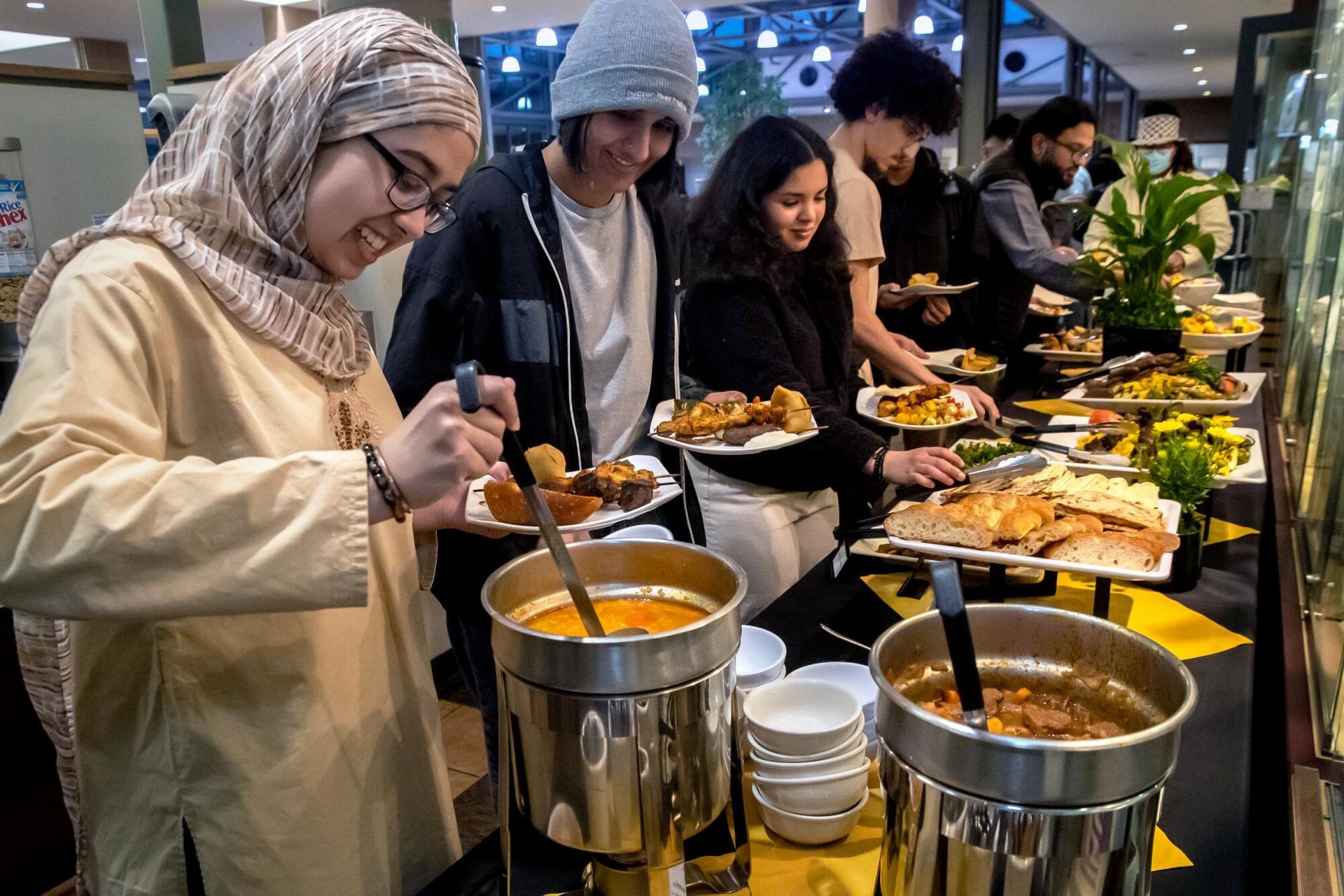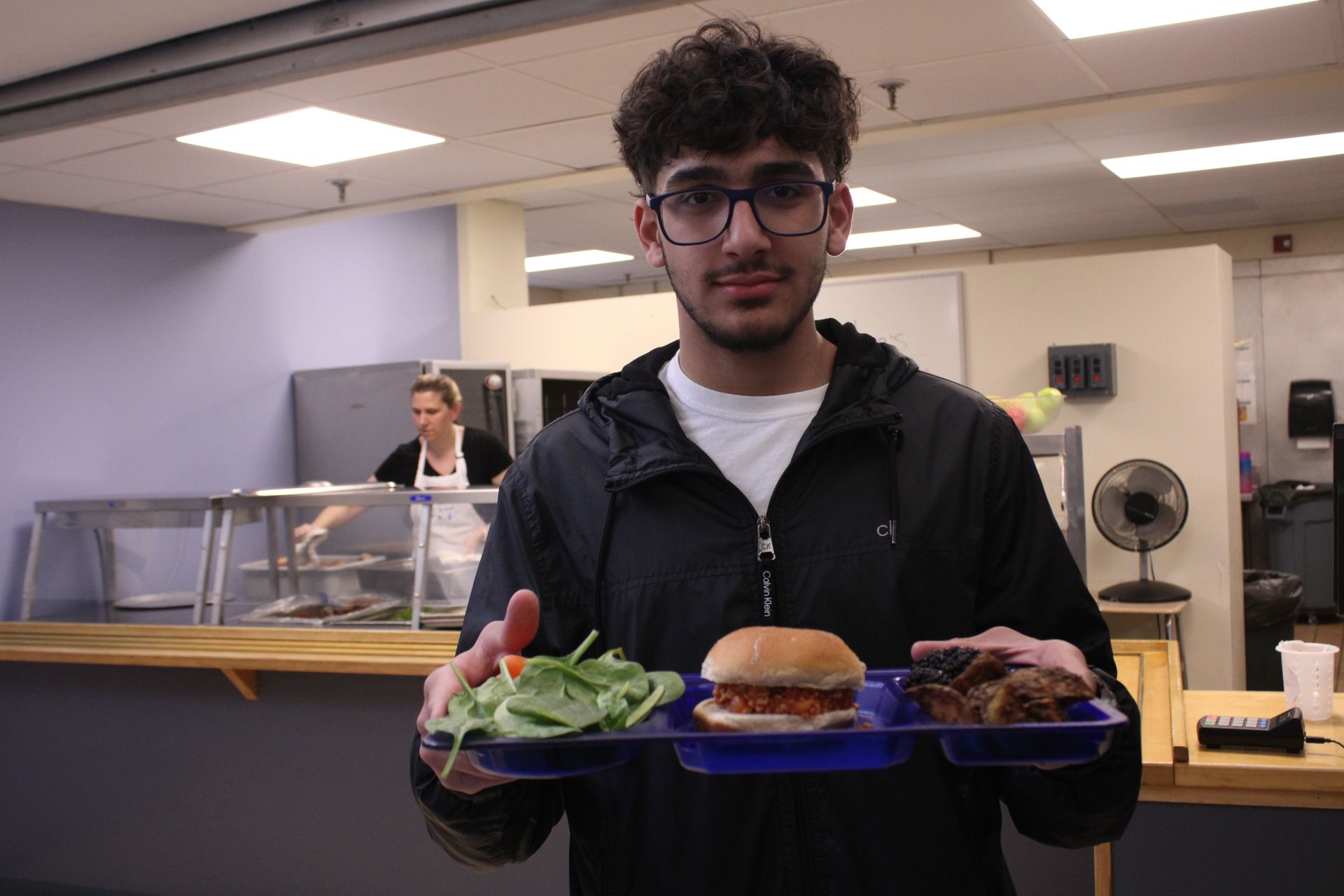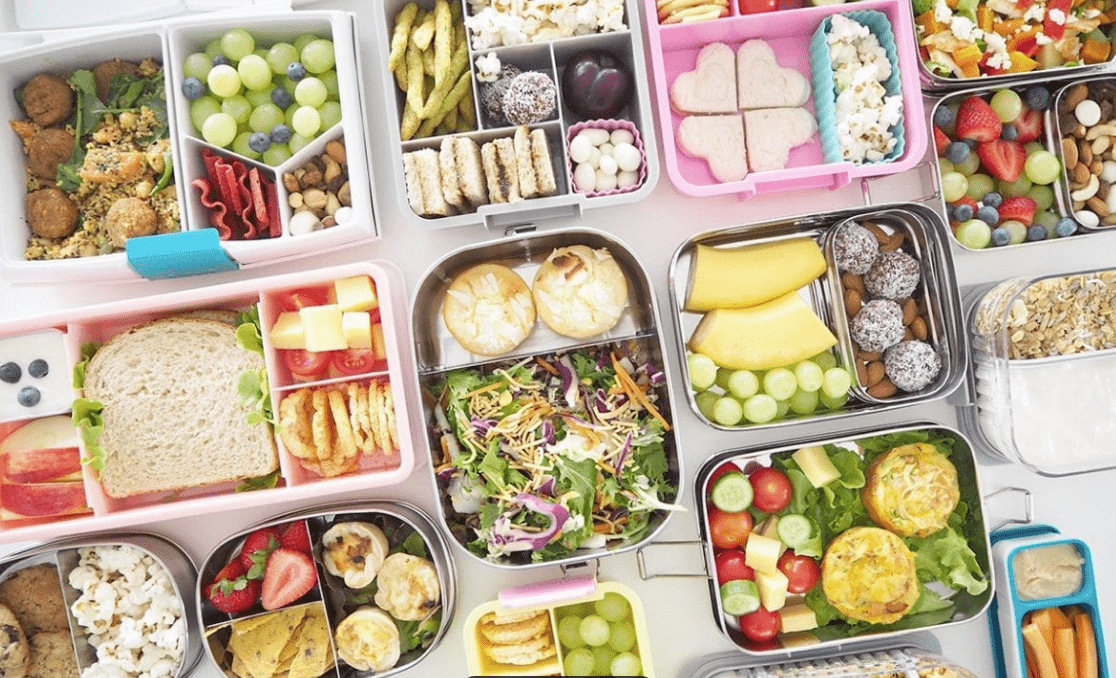1-877-HALAL-WW (+1-877-425-2599)
Building Inclusion Through Halal and Culturally Sensitive School Meals
A Family-Centered Guide to Addressing Diverse Dietary Needs and Strengthening School Communities

Introduction
As schools strive to serve the needs of increasingly diverse student populations, the voices of families play a pivotal role in shaping inclusive meal programs. Providing equitable and culturally sensitive meal options isn't just a logistical or regulatory challenge—it's a matter of respect, trust, and community connection. For families, ensuring their children are nourished with meals that meet their cultural and religious standards is fundamental to creating a positive educational environment.
Why Inclusive Meal Programs Matter to Families
For many families, school meal programs serve as an extension of their cultural identity and values. When schools offer meal options that reflect the dietary needs of diverse populations, they send a powerful message of inclusion and respect. This is particularly true for families whose religious practices necessitate specific dietary accommodations, such as halal meals for Muslim students.
Access to culturally appropriate meals directly impacts a child's sense of belonging and well-being at school. Parents often worry that without adequate meal options, their children may feel alienated, left out, or even pressured to compromise their dietary beliefs. Such situations can affect a student's concentration, participation, and overall academic performance. By offering inclusive meals, schools not only meet students' nutritional needs but also foster a supportive environment where every child feels valued and respected.
Moreover, inclusive meal programs help bridge cultural gaps within the student body. When students see their peers' dietary needs being acknowledged and accommodated, it promotes understanding and acceptance of different cultures and religions. This environment encourages open dialogue, reduces prejudices, and builds a more cohesive school community.
Challenges Faced by Students Who Cannot Eat Non-Halal Food
Students who adhere to halal dietary laws often face significant challenges when their school does not provide appropriate meal options. These challenges include:
- Accidental Consumption of Non-Halal Foods: Without proper labeling and staff awareness, students may inadvertently be served pork or non-halal meats. This can cause distress and violate their religious beliefs.
- Cross-Contamination Risks: Foods that are otherwise halal can become non-compliant through cross-contamination. Common surfaces, utensils, ovens, and other kitchen equipment used for both halal and non-halal foods can compromise the integrity of halal meals. This risk is heightened in busy school kitchens without dedicated areas for halal food preparation.
- Food Waste and Emotional Discomfort: Sometimes, students are handed meals they cannot eat due to non-halal ingredients. They may be told to dispose of the food, leading to waste and feelings of discomfort or guilt. Being required to throw away food they cannot consume is not only wasteful but also emotionally taxing for the student.
- Limited Protein Options: A lack of halal protein sources can result in students not receiving adequate nutrition. Reliance on limited or less nutritious options may contribute to malnutrition or hindered physical development.
- Social Isolation: Not participating in communal meals or having different food can make students feel excluded from their peers, impacting their social interactions and overall school experience.
These challenges underscore the importance of implementing inclusive meal programs that cater to the dietary needs of all students. Addressing these issues can significantly improve the well-being and academic success of students who require halal meals.

The Importance of Halal Certification
For Muslim families, halal-certified meals represent more than just dietary preferences—they signify adherence to religious practices and cultural identity. Halal dietary laws are integral to Islam, governing not only the types of food consumed but also the methods of preparation and sourcing. Schools providing halal meals ensure that Muslim students can fully participate in lunch programs without hesitation or concern, eliminating the need for them to bring meals from home or skip meals altogether.
This inclusivity reinforces a sense of trust between schools and families. Parents feel reassured knowing that the institution respects and accommodates their religious practices. It demonstrates the school's commitment to upholding the values of diversity and inclusion, which are essential in today's multicultural societies.
However, families understand the challenges schools face in implementing halal programs. These challenges include:
- Sourcing Ingredients: Partnering with halal-certified vendors who meet strict standards can be difficult, especially in areas with limited supplier options. Ensuring that all ingredients, not just meat products, comply with halal guidelines is crucial.
- Staff Training: Kitchen staff must understand halal preparation practices to avoid cross-contamination with non-halal foods. This requires comprehensive training and consistent adherence to protocols.
- Budget Constraints: Balancing the costs of halal certification and ingredient procurement with limited school budgets can be challenging. Halal products may sometimes be more expensive due to specialized sourcing.
Families appreciate efforts by schools to work with recognized organizations, like Halal Watch World, that streamline the certification process and provide expertise. Such partnerships ensure that halal programs are implemented correctly and sustainably, benefiting both the school and its students.
Cuisine and Cultural Sensitivity
Beyond meeting dietary laws, families are concerned about the cuisine offered in schools. Food is a significant aspect of cultural expression, and serving authentic dishes can greatly enhance a student's connection to their heritage. Families hope to see:
- Authentic and Diverse Menus: Incorporating traditional dishes from various cultures introduces all students to different cuisines, promoting cultural awareness and appreciation.
- Quality and Taste: Ensuring that meals are not only compliant but also delicious encourages students to participate in school meal programs, supporting their nutritional needs.
- Representation: When students see their culture's food represented, it validates their identity and fosters pride in their heritage.
By addressing these aspects, schools can create a more engaging and inclusive dining experience that resonates with students and their families.

Cultural Competence and Family Engagement
Parents and guardians want schools to engage in meaningful conversations about their children’s dietary needs. Many families are eager to collaborate with school officials to shape meal programs that work for everyone. This collaboration can include:
- Community Consultations: Hosting forums, meetings, or surveys to gather feedback on meal offerings. This open dialogue allows families to voice their concerns, preferences, and suggestions directly.
- Transparent Communication: Regularly updating families on menu changes, sourcing practices, and efforts to improve inclusivity builds trust and keeps the community informed.
- Cultural Celebrations: Organizing themed meal days or cultural events where diverse cuisines are featured. This not only showcases the inclusivity of the school’s meal program but also educates students about different cultures.
This level of engagement reassures families that their concerns are being heard and acted upon. It fosters a partnership between the school and families, essential for creating a supportive educational environment.
What Families Hope to See
Families envision meal programs that reflect diversity not only in words but in practice. Key elements they value include:
- Comprehensive Inclusion: Expanding meal options to accommodate all dietary needs, including halal, kosher, vegetarian, gluten-free, and allergen-free diets. This ensures that every student has access to meals that meet their specific requirements.
- Nutritious and Delicious Choices: Ensuring meals meet health standards while offering culturally inspired dishes that children enjoy. Balanced nutrition should not compromise taste and appeal.
- Unified Menus: Simplifying operations by transitioning to halal-certified or universally acceptable menus. For example, using halal meat for all students can reduce complexity and prevent segregation based on meal choices. Families often support this inclusive solution as it promotes unity among students.
- Educational Components: Incorporating educational elements about different dietary practices and cultures within the meal program. This can enhance students' understanding and respect for their peers.

The Role of Halal Watch World
For nearly four decades, Halal Watch World has worked with schools to build trust and deliver solutions that benefit both institutions and families. As the sole halal certification agency in Upstate New York, Halal Watch World offers unmatched expertise and resources, including:
- Certification Services: Ensuring schools meet strict halal standards, verified by recognized authorities. This gives families confidence that the meals provided adhere to their religious requirements.
- Staff Training Programs: Providing tailored workshops to educate school personnel on halal preparation, compliance, and cultural sensitivity. Training covers proper handling of halal foods, preventing cross-contamination, and understanding the significance of halal practices.
- Halal Sensitivity Training: Preparing school districts to meet students' religious, cultural, and dietary needs comprehensively. This training helps staff become more aware and respectful of the cultural nuances associated with halal practices.
- Family Engagement Support: Facilitating dialogues between schools and families to align expectations and build stronger community connections. Halal Watch World assists in organizing meetings, providing informational materials, and serving as a liaison.
- Advocacy and Community Support: Halal Watch World acts as an advocate for families and communities seeking to bring halal foods to their school districts. We support your community's efforts by providing expertise, resources, and guidance throughout the process. Our advocacy amplifies the voices of families, ensuring their needs are heard and addressed by school administrators.
By collaborating with trusted organizations like Halal Watch World, schools can address families’ concerns effectively and create meal programs that serve as models of inclusivity. Our expertise helps schools navigate the complexities of implementing halal programs while fostering a culturally competent environment.
Expanding Our Support
As more families across the country advocate for inclusive meal programs, Halal Watch World is committed to expanding our support to school districts nationwide. By offering our services beyond Upstate New York, we aim to assist more communities in bringing halal-certified meals to their schools. Our goal is to make inclusive dining accessible to all students, regardless of location.
The Path Forward
For families, inclusive meal programs are not merely about food—they are about ensuring their children feel respected, included, and supported. Schools that prioritize this inclusivity strengthen relationships with their communities, improve participation in meal programs, and set a standard for equity and respect.
As families continue to advocate for more inclusive policies, schools have the opportunity to lead the way by:
- Listening to Families: Actively seeking input and feedback to understand the unique needs and preferences of their student population.
- Embracing Cultural Diversity: Recognizing and celebrating the diverse backgrounds of students through inclusive practices and programs.
- Implementing Comprehensive Training: Investing in staff development to build cultural competence and ensure proper implementation of inclusive meal programs.
- Partnering with Experts: Collaborating with organizations like Halal Watch World to access resources, training, and certification services that facilitate successful program implementation.
By working closely with families and community partners, schools can provide an environment where every child—and their family—feels they truly belong. This collaborative approach not only benefits students but also enriches the entire school community by promoting understanding and respect for cultural diversity.

Conclusion
Inclusive school meal programs have a profound impact on students and their families. Addressing concerns about cuisine, dietary laws, and cultural sensitivity is crucial in fostering an environment of acceptance and respect. Through comprehensive training, open communication, and community engagement, schools can effectively meet the diverse needs of their students.
Implementing such programs demonstrates a school's commitment to equity and inclusivity, positively influencing student well-being and academic success. It sets a precedent for other institutions to follow, contributing to a more inclusive society.
Contact Halal Watch World
To learn more about how Halal Watch World can support your school in implementing inclusive, halal-certified meal programs, sensitivity training, and advocacy efforts, please contact us:
Halal Watch World
Phone:
1(877) HALAL - WW (8774252599)
Email:
support@halalwatchworld.org
Website:
www.halalwatchworld.org
By working together, families and schools can ensure that every student enjoys meals that honor their cultural and religious traditions, contributing to a positive and inclusive educational experience. Halal Watch World stands ready to advocate and support your community's efforts in bringing halal foods to your school district, fostering inclusivity and understanding nationwide.







